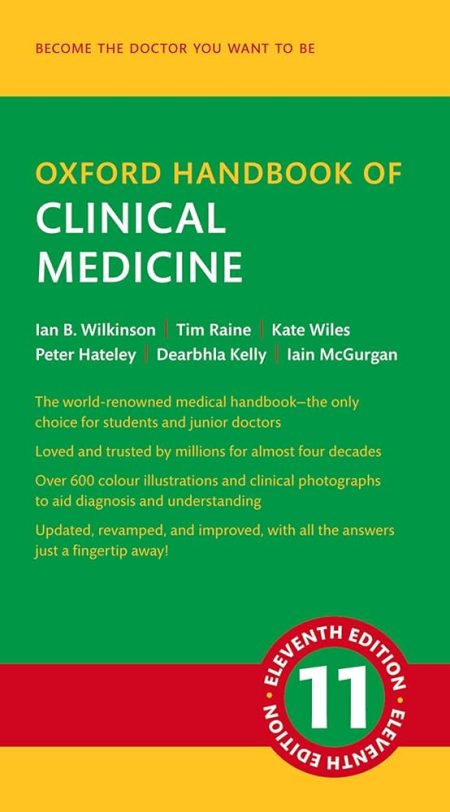Περιεχόμενα
1 Approach to Medicine, the Patient, and the Medical Profession
2 Bioethics in the Practice of Medicine
3 Palliative Care
4 Disparities in Health and Health Care
5 Global Health
6 History and Physical Examination
7 Approach to the Patient with Abnormal Vital Signs
8 Statistical Interpretation of Data for Clinical Decisions
9 Measuring Health and Health Care
10 Quality, Safety, and Value
11 Comprehensive Chronic Disease Management
11 Population Health
12 The Periodic Health Examination
13 Diet and Nutrition
14 Physical Activity
15 Immunization
16 Principles of Occupational and Environmental Medicine
17 Effects of Climate Change on Health
18 Radiation Injury
19 Bioterrorism
20 Chronic Poisoning: Trace Metals and Others
21 Adolescent Medicine
22 Epidemiology of Aging
23 Geriatric Assessment
24 Common Clinical Sequelae of Aging
25 Principles of Drug Therapy
26 Pain
27 Delirium in the Older Patient
27 Biology of Addiction
28 Immunomodulatory Drugs
29 Biologic Agents and Signaling Inhibitors
30 Complementary, Alternative, and Integrative Medicine
31 Principles of Genetics
32 Clinical Genomics – Genome Structure and Variation
33 Applications of Molecular Technologies to Clinical Medicine
34 Regenerative Medicine, Cell, and Gene Therapies
35 Innate and Adaptive Immunity
36 Tissue Injury and Repair
37 Complement System in Disease
38 Transplantation Immunology
39 Approach to the Patient with Possible Cardiovascular Disease
40 Epidemiology of Cardiovascular Disease
41 The Adaptive Immunse System
41 Cardiac and Circulatory Function
42 Mechanisms of Inflammation and Tissue Repair
42 Electrocardiography
43 Echocardiography
44 Noninvasive Cardiac Imaging
45 Heart Failure: Epidemiology, Pathobiology, and Diagnosis
46 Heart Failure: Treatment, Prevention, and Prognosis
47 Diseases of the Myocardium and Endocardium
48 Principles of Electrophysiology
49 Approach to the Patient with Suspected Arrhythmia
50 Catheterization and Angiography
50 Cardiac Arrest and Life-Threatening Arrhythmias
51 Bradycardias
52 Supraventricular Tachycardias
53 Ventricular Arrhythmias
54 Electrophysiologic Procedures and Surgery
55 Congenital Heart Disease in Adults
56 Chronic Ischemic Heart Disease
57 Acute Coronary Syndrome: Unstable Angina and Non-ST Elevation Myocardial Infarction
58 ST Elevation Acute Myocardial Infarction and Complications of Myocardial Infarction
59 Interventional and Surgical Treatment of Coronary Artery Disease
60 Valvular Heart Disease
61 Infective Endocarditis
62 Pericardial Diseases
63 Diseases of the Aorta
64 Arterial Hypertension
65 Atherosclerotic Peripheral Arterial Disease
66 Other Peripheral Arterial Diseases
67 Thrombotic Disorders: Hypercoagulable States
68 Venous Thrombosis and Embolism
69 Pulmonary Hypertension
70 Antithrombotic and Antiplatelet Therapy
71 Approach to the Patient with Respiratory Disease
72 Imaging in Pulmonary Disease
73 Respiratory Testing and Function
74 Disorders of Ventilatory Control
75 Asthma
76 Chronic Obstructive Pulmonary Disease
77 Cystic Fibrosis
78 Bronchiectasis, Atelectasis, Cysts, and Localized Lung Disorders
79 Alveolar Filling Disorders
80 Interstitial Lung Disease
81 Occupational Lung Disease
82 Physical and Chemical Injuries of the Lung
83 Sarcoidosis
84 Acute Bronchitis and Tracheitis
85 Overview of Pneumonia
86 Diseases of the Diaphragm, Chest Wall, Pleura, and Mediastinum
87 Interventional and Surgical Approaches to Lung Disease
88 Approach to the Patient in a Critical Care Setting
89 Respiratory Monitoring in Critical Care
90 Acute Respiratory Failure
91 Mechanical Ventilation
92 Approach to the Patient with Shock
93 Cardiogenic Shock
94 Shock Syndromes Related to Sepsis
95 Disorders Due to Heat and Cold
96 Acute Poisoning
97 Medical Aspects of Trauma and Burns
98 Envenomation, Bites, and Stings
99 Rhabdomyolysis
100 Approach to the Patient with Renal Disease
101 Structure and Function of the Kidneys
102 Disorders of Sodium and Water Homeostasis
103 Potassium Disorders
104 Acid-Base Disorders
105 Disorders of Magnesium and Phosphorus
106 Acute Kidney Injury
107 Glomerular Disorders and Nephrotic Syndromes
108 Tubulointerstitial Diseases
109 Diabetes and the Kidney
110 Vascular Disorders of the Kidney
111 Nephrolithiasis
112 Cystic Kidney Diseases
113 Hereditary and Developmental Abnormalities of the Urinary Tract
114 Benign Prostatic Hyperplasia and Prostatitis
115 Urinary Incontinence
116 Chronic Kidney Disease
117 Treatment of Irreversible Renal Failure
118 Approach to the Patient with Gastrointestinal Disease
119 Diagnostic Imaging Procedures in Gastroenterology
120 Gastrointestinal Endoscopy
121 Gastrointestinal Hemorrhage
122 Disorders of Gastrointestinal Motility
123 Functional Gastrointestinal Disorders: Irritable Bowel and Upper GI Syndromes
124 Diseases of the Esophagus
125 Acid Peptic Disease
126 Approach to the Patient with Diarrhea and Malabsorption
127 Inflammatory Bowel Disease
128 Anatomic and Inflammatory Diseases of the Intestines and Peritoneum
129 Vascular Gastrointestinal Diseases
130 Pancreatitis
131 Diseases of the Rectum and Anus
132 Approach to the Patient with Liver Disease
133 Approach to the Patient with Jaundice or Abnormal Liver Tests
134 Acute Viral Hepatitis
135 Chronic Viral and Autoimmune Hepatitis
136 Toxin- and Drug-Induced Liver Disease
137 Bacterial, Parasitic, Fungal, and Granulomatous Liver Diseases
138 Alcoholic and Nonalcoholic Steatohepatitis
139 Cirrhosis and Its Sequelae
140 Hepatic Failure and Liver Transplantation
141 Diseases of the Gallbladder and Bile Ducts
142 Hematopoiesis and Hematopoietic Growth Factors
143 The Peripheral Blood Smear
144 Approach to the Anemias
145 Microcytic and Hypochromic Anemias
146 Autoimmune and Intravascular Hemolytic Anemias
147 Hemolytic Anemias: Red Cell Membrane and Metabolic Defects
148 The Thalassemias
149 Sickle Cell Disease and Other Hemoglobinopathies
150 Megaloblastic Anemias
151 Aplastic Anemia and Related Bone Marrow Failure States
152 Polycythemia Vera, Essential Thrombocythemia, and Prima











